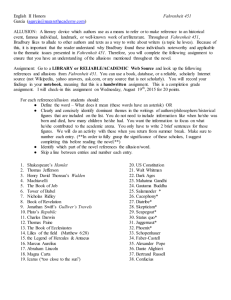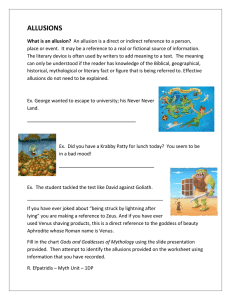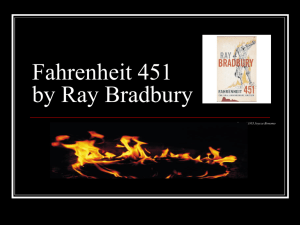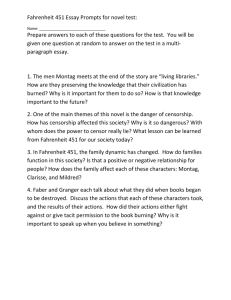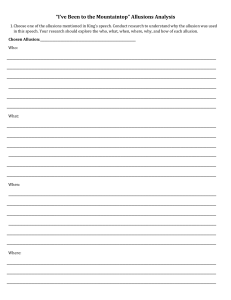How does Bradbury use literary allusions to enhance the themes and messages of Fahrenheit 451
advertisement
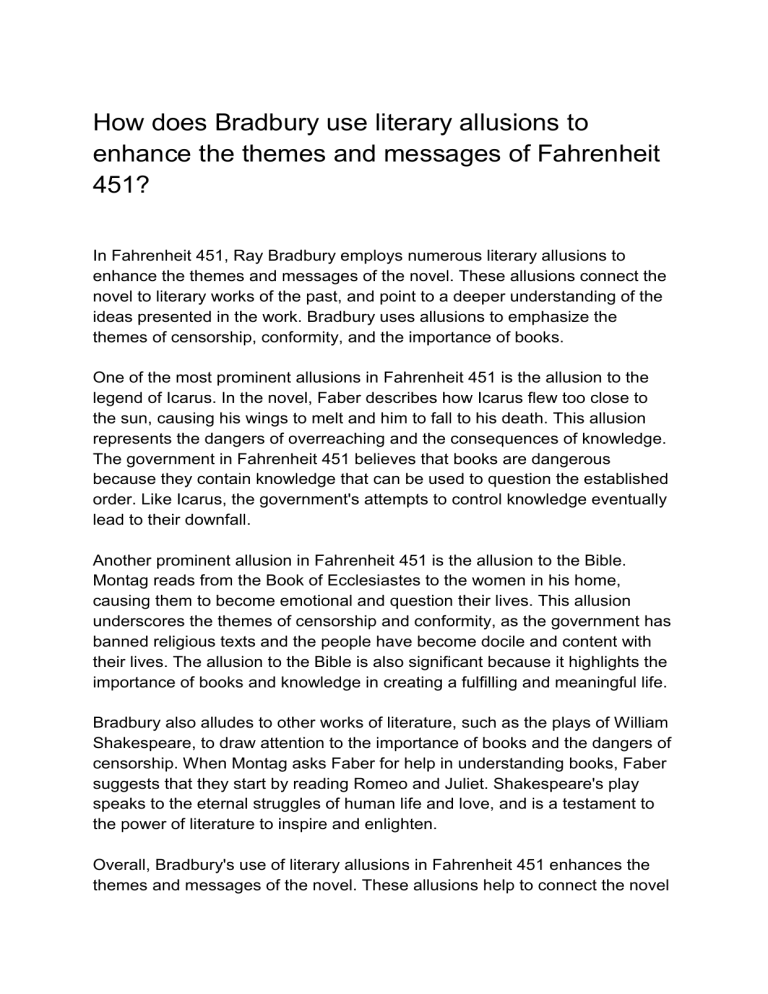
How does Bradbury use literary allusions to enhance the themes and messages of Fahrenheit 451? In Fahrenheit 451, Ray Bradbury employs numerous literary allusions to enhance the themes and messages of the novel. These allusions connect the novel to literary works of the past, and point to a deeper understanding of the ideas presented in the work. Bradbury uses allusions to emphasize the themes of censorship, conformity, and the importance of books. One of the most prominent allusions in Fahrenheit 451 is the allusion to the legend of Icarus. In the novel, Faber describes how Icarus flew too close to the sun, causing his wings to melt and him to fall to his death. This allusion represents the dangers of overreaching and the consequences of knowledge. The government in Fahrenheit 451 believes that books are dangerous because they contain knowledge that can be used to question the established order. Like Icarus, the government's attempts to control knowledge eventually lead to their downfall. Another prominent allusion in Fahrenheit 451 is the allusion to the Bible. Montag reads from the Book of Ecclesiastes to the women in his home, causing them to become emotional and question their lives. This allusion underscores the themes of censorship and conformity, as the government has banned religious texts and the people have become docile and content with their lives. The allusion to the Bible is also significant because it highlights the importance of books and knowledge in creating a fulfilling and meaningful life. Bradbury also alludes to other works of literature, such as the plays of William Shakespeare, to draw attention to the importance of books and the dangers of censorship. When Montag asks Faber for help in understanding books, Faber suggests that they start by reading Romeo and Juliet. Shakespeare's play speaks to the eternal struggles of human life and love, and is a testament to the power of literature to inspire and enlighten. Overall, Bradbury's use of literary allusions in Fahrenheit 451 enhances the themes and messages of the novel. These allusions help to connect the novel to the larger literary tradition and emphasize the importance of knowledge, books, and the dangers of censorship and conformity. By invoking the past, Bradbury highlights the struggles that are characteristic of human experience, and suggests that these struggles can be overcome through the power of literature. References: Bradbury, R. (1953). Fahrenheit 451. New York: Ballantine Books.
